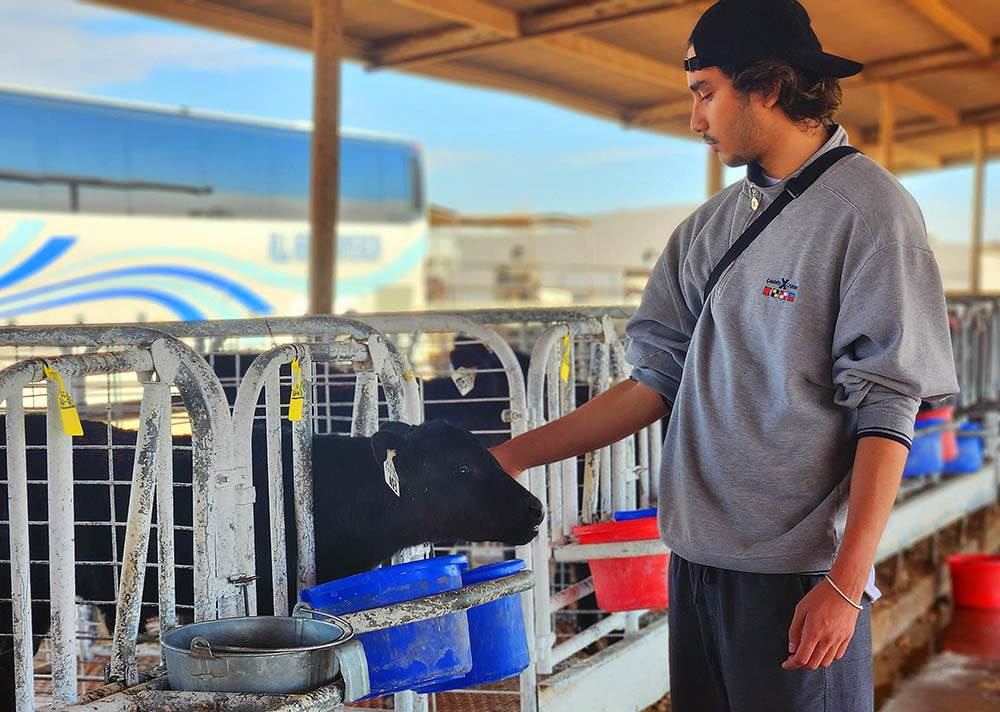
Casa Grande's Desperado, Du-Brook dairies spotlighted on tour
Photos by Lana Sweeten-Shults
CASA GRANDE, Ariz. — Got milk?
Check.
Got milk tour?
Double check.
Grand Canyon University students poured out of a Dairy Council of Arizona tour bus and onto the 80-acre Desperado Dairy Farms in early November in Casa Grande.
Owner Casey Dugan, a fourth-generation dairy farmer, greets the students, excitedly sharing what he just discovered at a recent dairy conference — a first-of-its-kind, milk-based sports hydration drink called GoodSport. As it turns out, milk naturally touts three times the electrolytes of traditional sports drinks.
“It’s basically milk without the milkiness,” he said, amazed at the science behind GoodSport, which is made from the nutrient-rich, clear liquid part of the milk left behind after its protein has been filtered out for use in products such as protein powders.
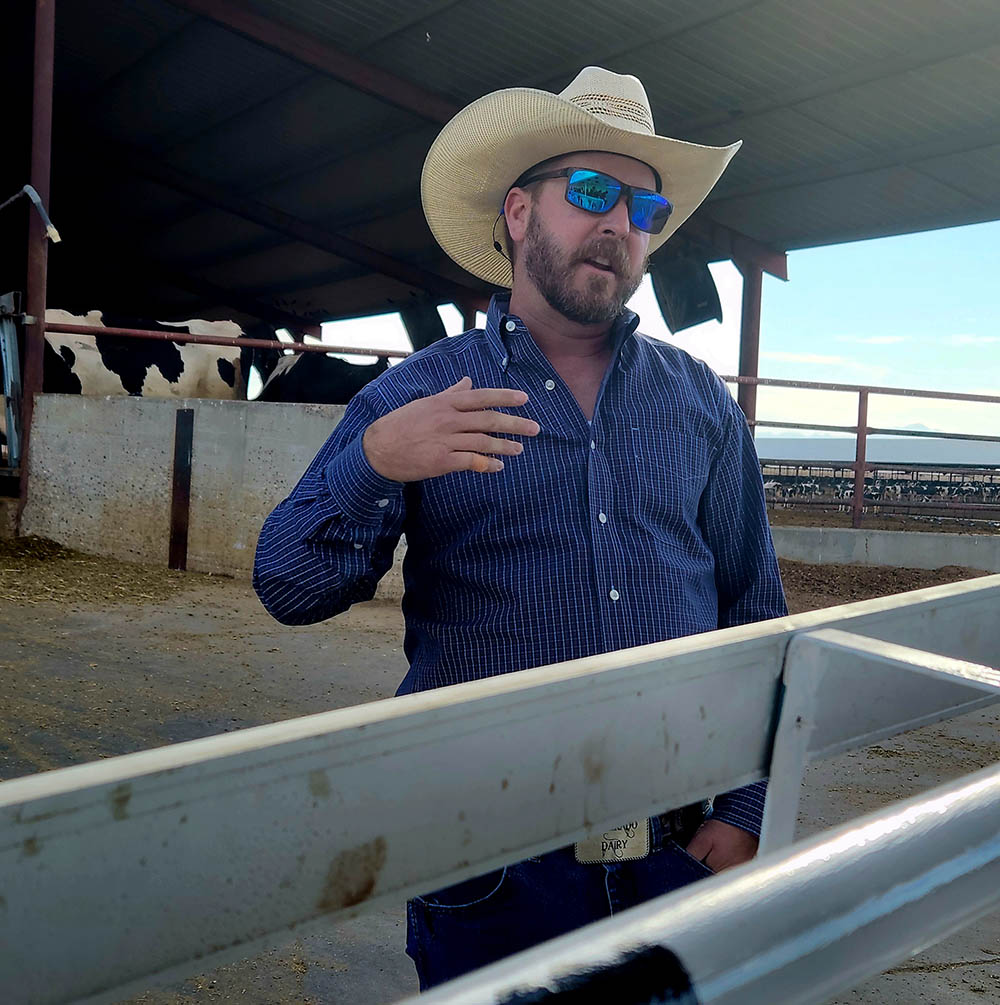
He then spoke of the new 300,000-square-foot production and distribution facility that Fairlife opened in 2021 in Goodyear. The company is partnering with the United Dairymen of Arizona, a local, family-owned dairy co-op, to source milk locally from dairy farmers.
“Pretty much all the Fairlife milk on the West Coast, it’s all Arizona milk,” Dugan said of the plant, which he had the opportunity to tour. “It’s super cool.”
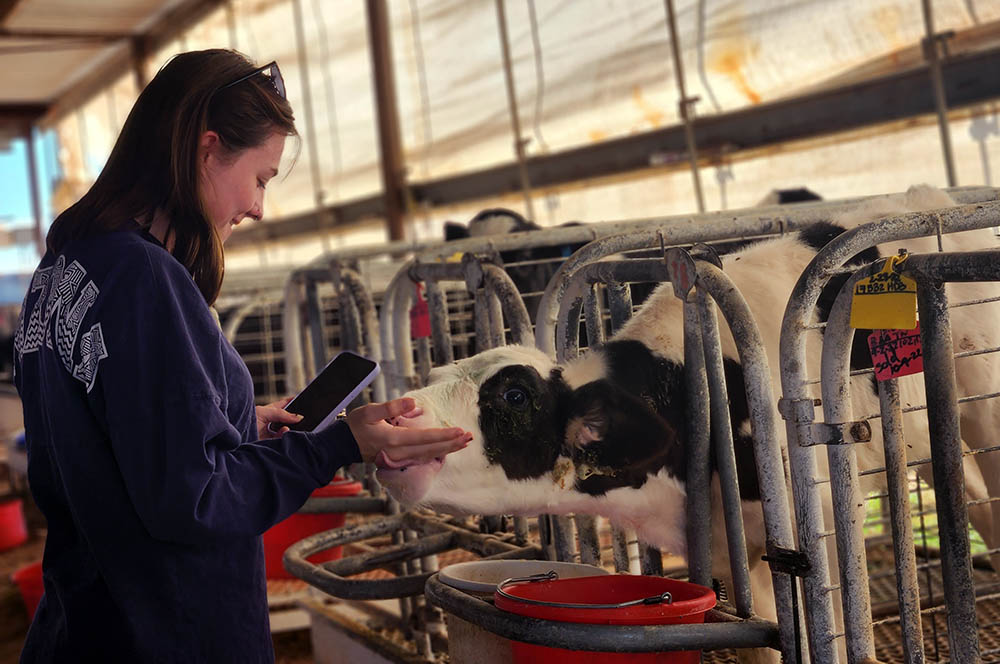
It’s one of the takeaways Dugan hopes students have about the state’s dairy industry. Well, not just that it’s cool, but that it isn’t prototypical red-barned small farms and older farmers running the show.
The innovative, high-tech industry is big business for Arizona, and it’s one Dugan hopes GCU’s students, a mix on the tour of nutrition science, pre-med and pre-health majors, will tout when they become future registered dietitians, nutritionists, nurses, doctors and the like.
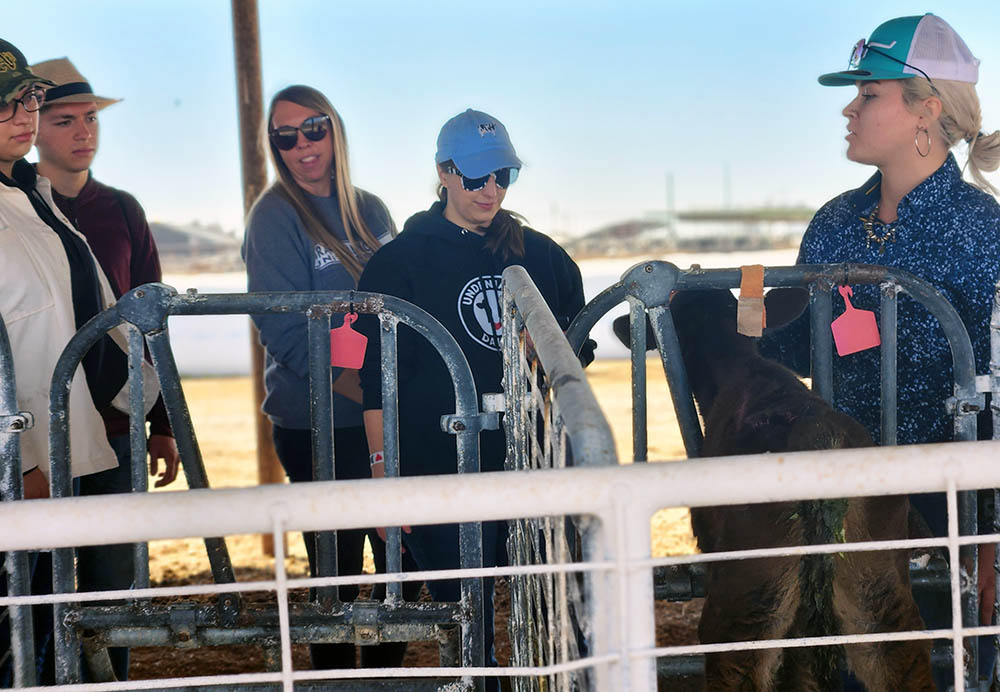
Providing nearly 44,000 jobs in the state, according to the Arizona Farm Bureau, and more than $540 million in annual wages, according Arizona dairy farmer Jim Boyle, cows produce a lot more than milk, relayed Lauren Kemmer, the Dairy Council’s Manager of Sustainable Nutrition. She led the tour and partnered with the GCU Nutrition Club and Nutrition Science program to make the tour happen.
“I heard the Nutrition program just started here, and the Dairy Council hadn’t previously worked at GCU, so it seemed natural to team up,” said Kemmer, who shared that the economic impact of dairy products sold annually in Arizona is close to $8 billion.
“That’s a HUGE piece of our Arizona economy,” she said.
Farmers such as Dugan are the key to that economy.
About 98% of dairy farms are family-owned, though the number has dropped from 390 dairies in 1960 to 37 producers and 25 families today.
Most of those farmers have been in the industry for generations.
Dugan, who graduated with a business degree, was born into dairy farming. His grandfather, Michael Dugan, moved to Arizona from Wisconsin in 1965 to start his business, and all six of his children became dairy producers.
“He gave them 300 cows each and said, ‘Do your own dairy. Don’t come back,’” Dugan said with a smile.
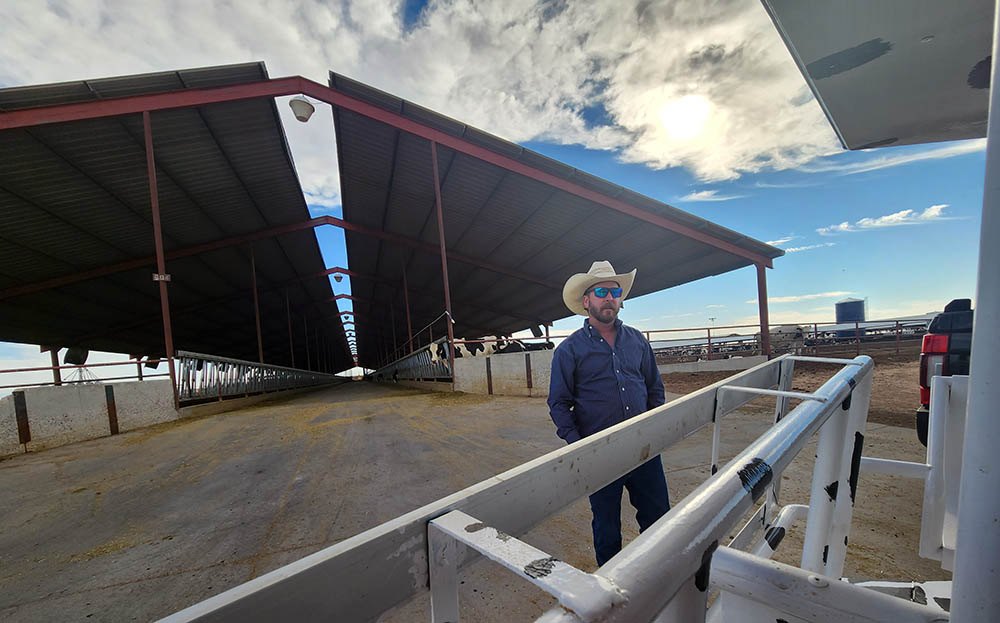
Casey Dugan worked for his dad, Patrick, at Du-Brook Dairy, next to his own farm (and another stop on the tour), until he bought his uncle’s dairy and 1,000 cows to go with it.
While his operation is 2,000 cows strong — the same number as Du-Brook’s (though Du-Brook's also touts 2,000 young stock) — the average herd size for Arizona dairies is even bigger, some 3,500 cows.
The state’s dairy producers are banking on those cows to be happy ones.
“Those dairy farmers work super hard making sure their cows are happy and comfortable,” because happy cows produce more milk, Kemmer said. “Even in over 100-degree temperatures, you’ll see that the cows have misters and fans.”
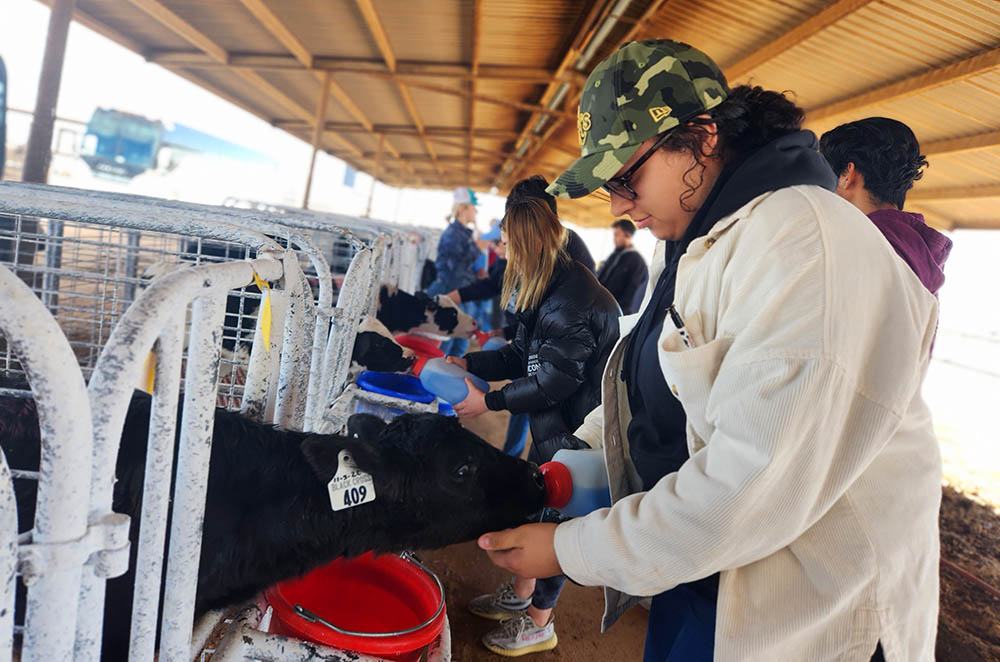
If the students didn’t know already, Arizona produces a lot of milk. It’s ranked 14th in the nation in milk production with more than 1 million gallons of milk produced per day by 200,000 dairy cows — milk that goes from cow to store in about 48 hours.
So Arizonans have plenty of opportunities to partake of locally sourced milk, from Shamrock Farms to Arizona Farms Cheese to milk from Laveen-based Danzeisen Dairy to Franklin Foods cream cheese and Lactalis yogurt (distributed under the siggi’s and Green Mountain brands), which are both produced in Casa Grande.
Kemmer spoke about sustainability in the industry, too.
Dairy farms reuse water up to six times, she said, using the same water on their crops that they do to flush out cow pens, an important practice considering the devastating years-long drought that has hit Pinal County farmers particularly hard. They’re also employing drip irrigation systems, LED lights and diverting foods headed to landfills, such as expired bakery products, to their farms to feed cows.
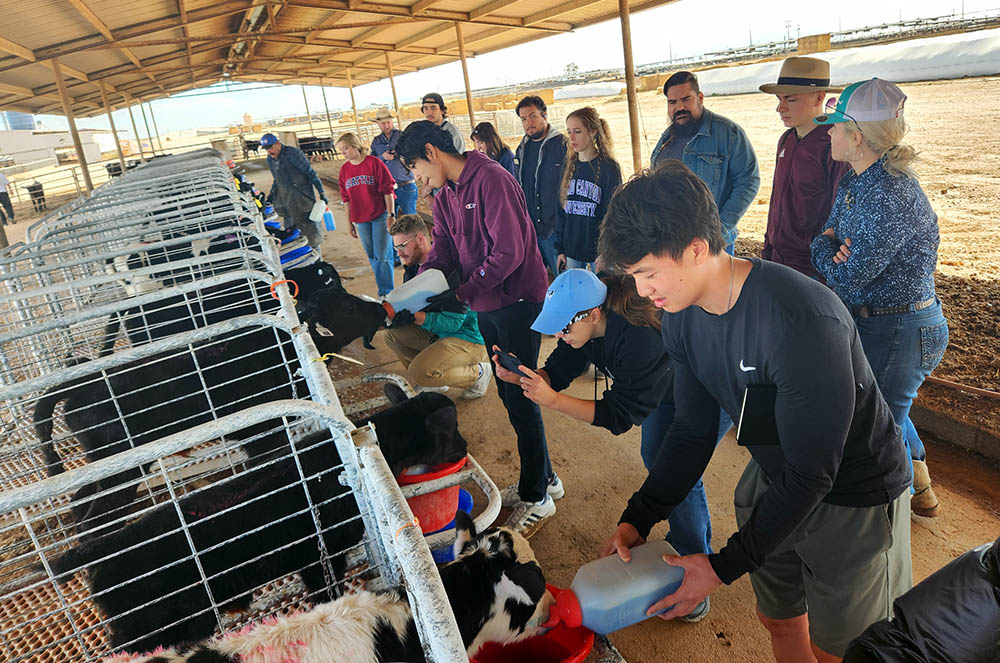
The dairy farming industry in a 2007 greenhouse gases carbon footprint study found that dairy production contributes only 2% of all U.S. greenhouse gas emissions.
“Since 2017, we’re using 30% less water, 21% less land and have 19% less greenhouse gas emissions. … Our goal for U.S. dairy is that we want to be carbon neutral by 2050 or better,” Kemmer said.
Since 2017, we're using 30% less water, 21% less land and have 19% less greenhouse gas emissions. ... Our goal for U.S. dairy is that we want to be carbon neutral by 2050 or better.
Lauren Kemmer, Dairy Council of Arizona Manager of Sustainable Nutrition
She also detailed the different types of milk, from conventional to raw (unpasteurized milk, straight from the cow) to flavored (Danzeisen makes an orange milk that tastes like a Creamsicle) to lactose-free options, in which producers add a lactase enzyme to make it easier to digest the lactose.
And she emphasized dairy’s role in nutrition: It touts protein and 13 essential nutrients, including calcium and Vitamin D, “two of the ones that we’re not hitting as Americans,” Kemmer said.
Courtney Baker, GCU Director of Nutrition and Dietetics, said what she hoped from this tour was that students got answers directly from farmers: “There’s a lot of misinformation out there, so I think it’s important to ask questions of those involved.”
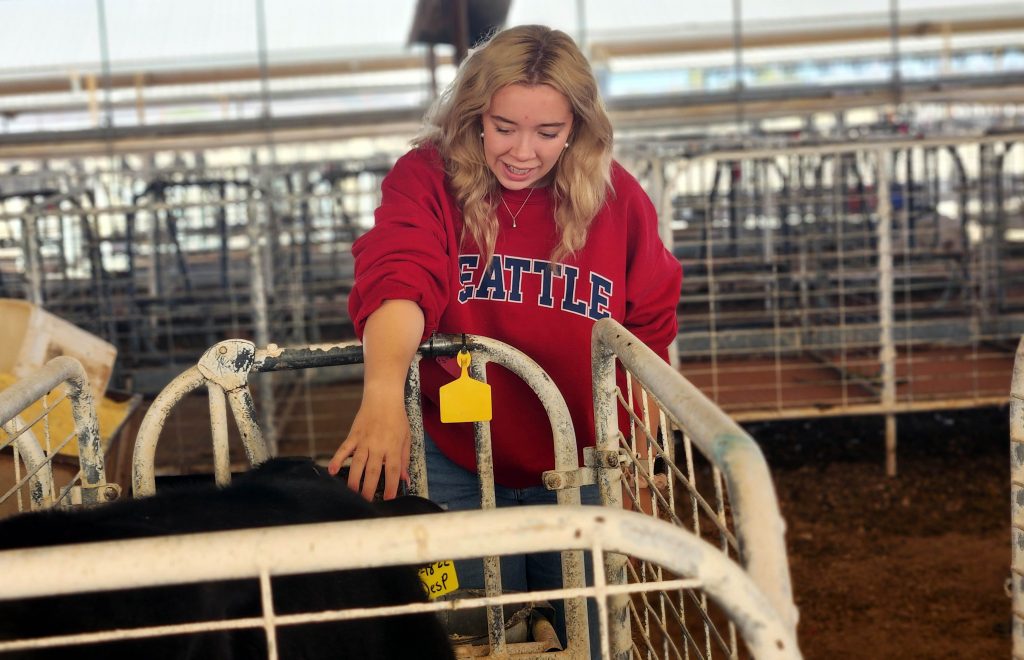
GCU’s Ruben Arangure, Employer Engagement Program Manager for Strategic Employer Initiatives and Internships, joined the tour to “see what kind of opportunities they have for education and more experiences for students.”
And nutrition science major Lily Thompson attended in part for nostalgia’s sake. She worked on a dairy farm owned by her friend’s family in Colorado.
“It feels like home being back on the farm again,” said Thompson, who wants to work in the nutrition field because she has food allergies and a stomach disease and has chosen to manage it through diet.
But more than nostalgia, she emphasized how important it is for her to learn all she can about food — dairy being a large part of that equation — and how it can better everyone’s lives.
“I really understand the power of food and its effect on the body. I’m really passionate about it.”
Happy cows, yes, but happy people, too.
GCU senior writer Lana Sweeten-Shults can be reached at [email protected] or at 602-639-7901.
****
Related content:















